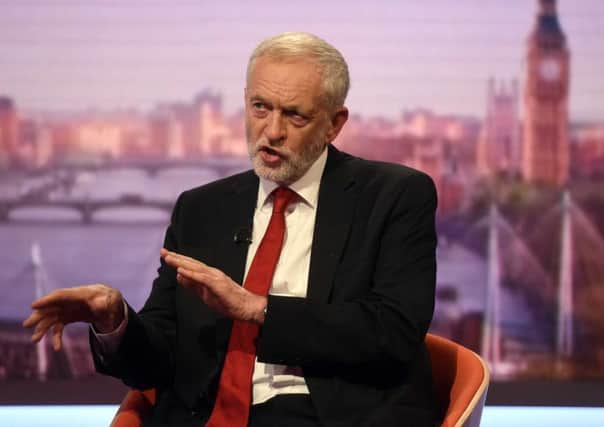Chris Bond: Why the youth vote now matters and is music to the ears of the jilted generation


I, along with more than 13.5 million others in this country, voted for a fresh start under Tony Blair’s rebooted New Labour. The turnout that day was 71 per cent, a figure that hasn’t come close to being reached again – until now.
Thursday’s turnout was 68.7 per cent which, given the distinct lack of appetite for another election when Theresa May made her shock announcement a little over seven weeks ago, is both remarkable and encouraging.
Advertisement
Hide AdAdvertisement
Hide AdThe reasons behind May’s failure to even hold onto the slim majority the Government had going into this election are manifold.
It’s been dubbed “the remainers’ revenge” – a response from those who voted against leaving the EU in last year’s bitterly divisive referendum.
The collapse of the Ukip vote materialised as predicted, but rather than transferring automatically to Team May, as the Tories (and indeed most pundits) anticipated, it appears to have been shared far more evenly between the two main parties.
Politics, like blood, runs deep in people and while many traditional Labour supporters were prepared to vote for Brexit or had even swapped allegiance to Ukip at the last election, they reverted back to their former loyalties.
Advertisement
Hide AdAdvertisement
Hide AdThere’s also the question of how many older voters having seen the much vaunted triple lock come into question, on top of the U-turn over the so-called ‘dementia tax’, turned their back on the Tories.
However, it’s at the other end of the demographic spectrum where the result is, arguably, most intriguing.
The received wisdom is that young people don’t tend to vote, that they’re either disinterested or they can’t be bothered, hence pollsters don’t pay them much attention. May didn’t go after them, focusing instead on the traditional Labour heartlands in those northern towns and cities that voted for Brexit.
This is despite the fact that statistics show the huge untapped potential there is in young or first-time voters if only their support can be properly harnessed.
Advertisement
Hide AdAdvertisement
Hide AdAccording to official data, an estimated 1.1 million more people have joined the electoral roll since last year and, interestingly, more young people registered to vote in the 30 days before the deadline than in the same period before the last election or the EU referendum.
An ICM poll found that 63 per cent of 18-24 year-olds said they were ‘absolutely certain’ to vote. Perhaps most significantly, of those that were certain to vote, two-thirds planned to back Labour.
From the outset, Jeremy Corbyn and his supporters tried to engage with younger voters who responded favourably to pledges to scrap university tuition fees and re-introduce housing benefits to those under the age of 21.
Labour’s election success has led some to speculate just what might have been achieved had the leadership of the party been in different hands. But could Owen Smith or Yvette Cooper, or anyone else who challenged Corbyn, have galvanised the youth vote in the same way? The answer has to be a resounding ‘no’.
Advertisement
Hide AdAdvertisement
Hide AdIt wasn’t only the message that was important but the way it was delivered.
While there was the traditional sight of prospective candidates and activists out door-knocking people in their local communities, a simultaneous campaign was being waged largely by the left and by Momentum, the grassroots campaign network born out of Corbyn’s 2015 Labour leadership bid, that talked to young people in their own language and, most importantly, via their natural domain – the internet.
Films, stories and video messages, some of which attracted millions of hits, were posted online targeting an audience that hitherto politicians hadn’t thought was worth the effort, or simply hadn’t known how to reach.
This could prove to be a watershed moment in British politics and one that has game-changing repercussions.
Advertisement
Hide AdAdvertisement
Hide AdIt remains to be seen whether this is just a blip and little more than an angry, ephemeral protest, or whether a jilted generation has finally woken up to the fact that it not only has a voice, but a powerful one.
One thing’s for sure, though. If politicians weren’t listening to them before, you can bet your bottom dollar they will be now.